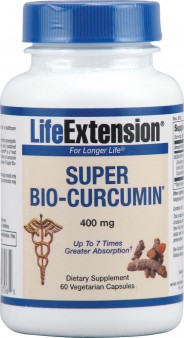A fresh approach to cancer
In March 2011 Gemma Bond was diagnosed with ovarian and uterine cancer. She agreed to a full hysterectomy (in which her uterus and ovaries were removed) but refused chemotherapy. People were shocked by her decision, so her daughter Laura, a journalist and qualified health coach, started a blog to share options other than conventional treatment. Gemma is currently well and free of cancer. Having talked to more than 60 experts worldwide, Laura reports her findings in a new book, Mum’s Not Having Chemo (Piatkus, £14.99). She emphasises it’s not only about treatment options (which should always be discussed with your doctor): ‘I discovered many strategies to help prevent cancer – and keep you in optimum health.’
Here are the tips she would give her best friend…
 Turn to turmeric. This golden spice can help to block brain-tumour formation, according to New York neuroscientist Professor Probal Banerjee. The active compound curcumin also protects against oestrogen-mimicking chemicals – known cancer-causing agents. Cook with it and consider a supplement (such as Life Extension Super Bio-Curcumin, £27.75 from Victoria Health, www.victoriahealth.com).
Turn to turmeric. This golden spice can help to block brain-tumour formation, according to New York neuroscientist Professor Probal Banerjee. The active compound curcumin also protects against oestrogen-mimicking chemicals – known cancer-causing agents. Cook with it and consider a supplement (such as Life Extension Super Bio-Curcumin, £27.75 from Victoria Health, www.victoriahealth.com).
Get moving. Exercise could help ward off cancer, says Cancer Research UK, reducing the risk of bowel cancer and probably breast, prostate, lung and endometrial cancers too. Plus, running ‘is akin to taking Prozac and Ritalin because, like the drugs, exercise elevates [serotonin and dopamine] neurotransmitters,’ says Dr John Ratey, associate clinical professor of psychiatry at Harvard Medical School.
Drink your greens. We all have cancer cells in our bodies but a healthy immune system will detect and destroy some 400 daily. Try a fresh green juice (eg, kale, celery, spinach, wheatgrass and a small apple) every day, which will flood the body with anti-cancer enzymes, help detoxify and improve oxygen transport. ‘Cancer cells cannot live in an oxygenated body,’ says integrative oncologist Dr Thomas Lodi.
Switch to almond milk. Cow’s milk contains high levels of insulin-like growth factor (IGF1), which may increase the risk of breast and prostate cancer. Almond milk contains potent anti-cancer nutrients, including selenium and magnesium. Plus, it won’t cause indigestion, bloating or the sinus problems sometimes associated with cow’s milk.
Soak up some sun. Women with low levels of vitamin D – the sunshine vitamin – in their breast tissue could have an increased risk of breast cancer. Even fair-skinned people can tolerate ten minutes with few clothes on in bright sunlight without burning, as Cancer Research UK now advises. (The DM inder iPhone app tells you when the sun is at the right angle.) In winter, consider supplementing with D3 (Better You D-Lux 3000, £7.95 from Victoria Health, www.victoriahealth.com - buy here.)
HEAR! HEAR!
Finding the best hearing aid can be fraught with problems and expense, as I discovered when a family member spent thousands on sophisticated but totally unsuitable technology. So I was delighted to find that Which? has partnered with Action On Hearing Loss to provide a free online guide to getting the right aid. Find it at www.which.co.uk/hearingaids.

KEEP AN EYE ON LASH SERUMS
For the past two years, I have been badgering the UK Medicines and Healthcare Products Regulatory Agency (MHRA) about eyelash growth enhancers, some of which contain pharmaceutical substances called prostaglandin analogues used in glaucoma drugs (see my 20 January column).
In June, the MHRA told me it ‘shares concern about the appropriateness of using such agents in unlicensed products’ and has referred it to the Department for Business, Innovation & Skills, which looks after consumer protection. But the products continue to be sold over the counter, potentially endangering people’s vision.
Meanwhile, the Swedish Medical Products Agency (SMPA) has analysed 26 eyelash serums and found that nine contained prostaglandin analogues, which ‘the agency views very seriously’. It advises consumers not to use these products as it ‘may lead to serious side effects’. The SMPA is pursuing a ban and has published a full list of the products on its website: visit www.lakemedelsverket.se and search for ‘eyelash serums’.